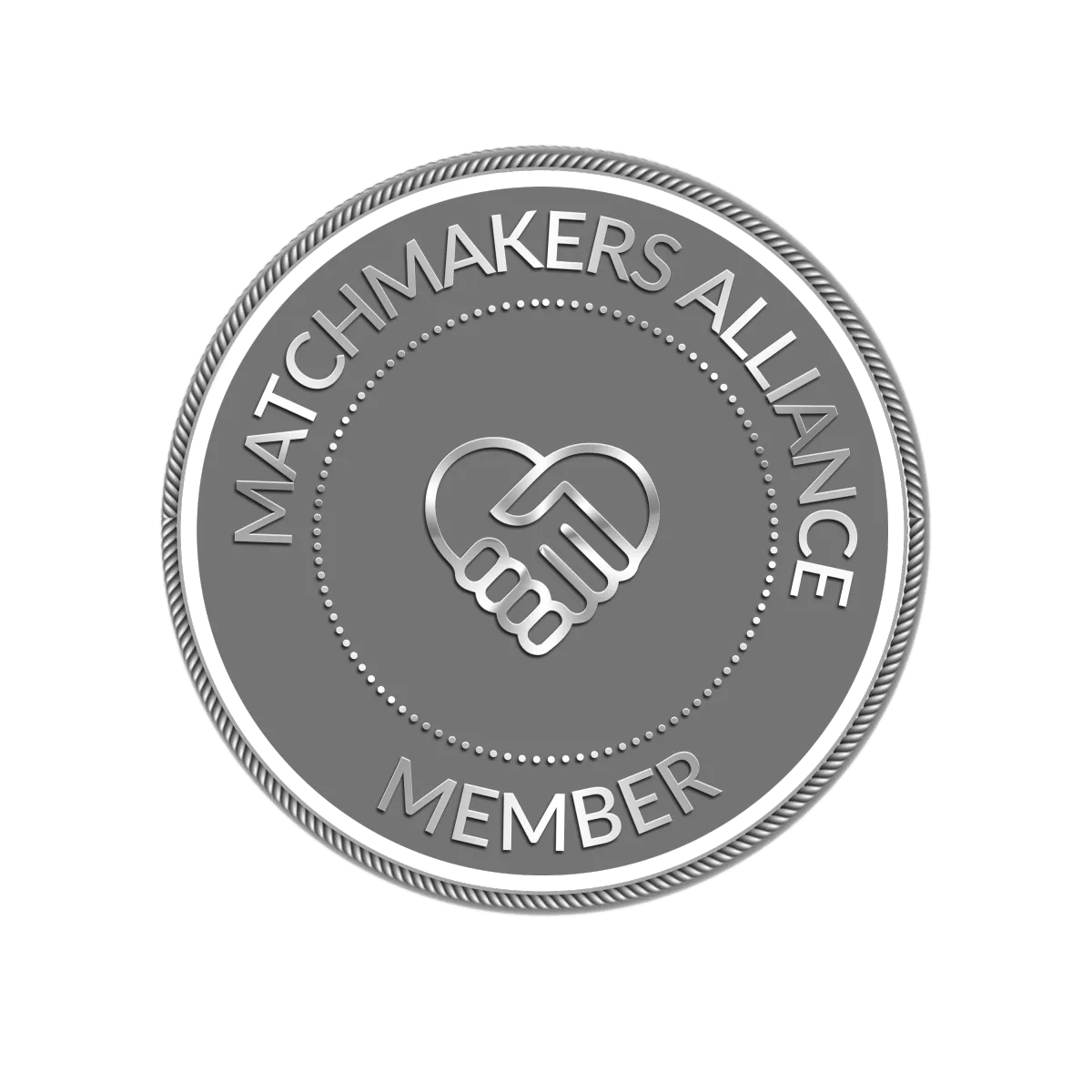WELCOME TO OUR B L O G
Let's Begin: Your Journey to Love Starts Here!
Welcome to MLM's Blog, your go-to spot for all things relationships. Our blog is like a cozy chat over coffee, where we spill the tea on dating, share stories, and dive into the psychology behind connections. Whether you're navigating the world of online dating or just looking for some heartwarming reads, we've got you covered.
Welcome to MLM's Blog, your go-to spot for all things relationships. Our blog is like a cozy chat over coffee, where we spill the tea on dating, share stories, and dive into the psychology behind connections. Whether you're navigating the world of online dating or just looking for some heartwarming reads, we've got you covered.

How to Know if You’re Ready for a Relationship
"True love doesn't come to you; it has to be inside you." – Julia Roberts
Entering a new relationship is an exhilarating experience, full of possibilities and the potential for deep connection. However, before diving into a new partnership, it's crucial to assess whether you're truly ready for the commitment, effort, and emotional investment that a relationship requires. Knowing when you're prepared involves deep introspection, emotional maturity, and a clear understanding of what you want and need. Here’s a comprehensive guide to help you determine if you’re ready for a relationship.

1. Understanding Your Emotional Availability
Emotional availability is the cornerstone of any successful relationship. It’s essential to ensure that you’ve fully healed from past wounds before stepping into a new partnership. This healing process might involve reflecting on past relationships, whether romantic or otherwise, and addressing any unresolved pain or lingering emotional scars. If thoughts of an ex or past experiences still trigger feelings of anger, sadness, or regret, it’s a sign that you might not yet be ready to fully engage with someone new. Healing involves more than just time; it often requires intentional efforts such as seeking closure, forgiving those who have hurt you, and forgiving yourself for any mistakes you may have made.
Tips:
Engage in self-reflection: Take time to understand your emotional state and how past experiences have shaped your current perspective. Journaling or therapy can be powerful tools for this process.
Seek closure: If past relationships still affect you, consider having a conversation (if appropriate) to gain closure or use techniques like writing a letter you don’t send to express your feelings.
Practice forgiveness: Forgive yourself and others to release the hold of past pain and make space for new emotional experiences.
Embrace vulnerability: Practice being open and vulnerable in safe, supportive environments to build your confidence in doing so in a relationship.
2. Cultivate Self-Love and Confidence
A fulfilling relationship begins with a solid foundation of self-love and confidence. Before you can fully invest in a relationship with someone else, it’s important to develop a healthy relationship with yourself. This involves recognizing your intrinsic value, appreciating your unique qualities, and treating yourself with kindness and respect. Self-love isn’t just about occasional self-care practices like treating yourself to a spa day or buying something nice; it’s about truly believing that you are worthy of love and respect, regardless of whether you’re in a relationship.
Tips:
Daily affirmations: Start each day with affirmations that reinforce your worth and uniqueness.
Celebrate your strengths: Regularly acknowledge and celebrate your accomplishments and strengths, no matter how small.
Set healthy boundaries: Confidence in yourself allows you to set and maintain boundaries that protect your well-being in relationships.
Engage in self-care: Prioritize activities that nourish your mind, body, and spirit, reinforcing your sense of self-worth.
3. Be Comfortable with Being Alone
One of the clearest signs that you’re ready for a relationship is your ability to be content on your own. This means you don’t rely on a relationship to fill an emotional void or provide you with a sense of purpose. Instead, you see a relationship as an addition to an already fulfilling life. Being comfortable with solitude allows you to enter a relationship from a position of strength, rather than from a place of neediness or desperation.
Tips:
Develop solo hobbies: Cultivate hobbies and interests that you enjoy doing alone, such as reading, painting, or hiking.
Practice mindfulness: Engage in mindfulness or meditation practices that help you connect with and appreciate the present moment.
Enjoy self-dates: Take yourself out for a meal, a movie, or a day out to experience the joy of your own company.
Build a support system: Strengthen your friendships and support network so that you’re not reliant on a romantic partner for emotional fulfillment.
4. Clarity on What You Want
Having a clear understanding of what you want in a relationship is essential for making informed decisions about potential partners. This clarity helps you avoid entering relationships that are unlikely to fulfill your needs or align with your life goals. Start by reflecting on what you want from a relationship—are you looking for something casual, or are you interested in a committed, long-term partnership? Being honest with yourself about your intentions will help you communicate more effectively with potential partners and ensure that you’re both on the same page.
Tips:
Write it down: List your relationship goals and non-negotiables to keep them clear in your mind.
Communicate openly: When dating, be upfront about your intentions and listen carefully to what the other person wants.
Reflect on past relationships: Analyze what worked and what didn’t in past relationships to gain clarity on what you need moving forward.
Consult trusted friends: Discuss your relationship goals with trusted friends or mentors to gain different perspectives.
5. Set and Respect Boundaries
Boundaries are an essential component of any healthy relationship. They help to establish mutual respect, ensure that both partners’ needs are met, and prevent misunderstandings or resentment from building up over time. Before entering a new relationship, it’s important to take the time to define what your boundaries are—both for yourself and for your potential partner.
Tips:
Define your boundaries: Clearly define what is acceptable and unacceptable in a relationship, whether it’s related to communication, personal space, or time commitments.
Practice saying no: Get comfortable with saying no when something crosses your boundaries, and don’t feel guilty about it.
Communicate boundaries early: Discuss your boundaries with a potential partner early in the relationship to ensure you’re on the same page.
Respect your partner’s boundaries: Be equally respectful of your partner’s boundaries, creating a mutual understanding and respect.
6. Effective Communication Skills
Communication is the foundation of any strong relationship. Without the ability to communicate effectively, even the most compatible partners can struggle to maintain a healthy and fulfilling relationship. Effective communication involves more than just talking; it’s about actively listening, empathizing with your partner’s perspective, and expressing your thoughts and feelings in a clear and respectful manner.
Tips:
Active listening: Practice active listening by focusing fully on your partner when they speak, without interrupting or planning your response.
Use “I” statements: When expressing your feelings, use “I” statements (e.g., “I feel…” rather than “You make me feel…”) to avoid sounding accusatory.
Check for understanding: After discussing important topics, summarize what your partner has said to ensure you’ve understood correctly.
Manage emotions: Learn to manage your emotions during discussions to prevent them from escalating into arguments.
7. Willingness to Compromise
Compromise is a key ingredient in any successful relationship. No two people are exactly alike, and differences in opinions, preferences, and lifestyles are bound to arise. Being ready for a relationship means you’re willing to find a middle ground that satisfies both you and your partner without feeling like you’re sacrificing your own needs or values.
Tips:
Identify what’s negotiable: Know the difference between what’s negotiable and what’s not, and be willing to discuss compromises on the former.
Approach compromise as teamwork: View compromise as a collaborative effort rather than a concession, working together to find solutions that benefit both parties.
Stay flexible: Be open to adjusting your views or plans when necessary, recognizing that flexibility can lead to a more harmonious relationship.
Practice empathy: Try to see things from your partner’s perspective to better understand their needs and motivations.
8. Constructive Conflict Resolution
Conflict is an inevitable part of any relationship, but how you handle it can make or break the partnership. Being ready for a relationship means you have the ability to approach disagreements in a constructive manner, focusing on finding solutions rather than assigning blame.
Tips:
Stay calm: Practice deep breathing or other relaxation techniques to stay calm during conflicts.
Focus on the issue, not the person: Address the specific issue at hand without resorting to personal attacks or bringing up past grievances.
Take a time-out: If emotions run high, agree to take a break and revisit the discussion when both parties are calmer.
Seek resolution, not victory: Approach conflicts with the goal of resolving the issue, not “winning” the argument.
9. Life Stability
Life stability is an important factor to consider when determining if you’re ready for a relationship. While no one’s life is ever completely free of challenges, having a certain level of stability provides a solid foundation for a healthy partnership. This stability can come in many forms, including financial security, job stability, and emotional well-being.
Tips:
Assess your life balance: Regularly evaluate how balanced your life feels across different areas—work, personal life, health, etc.
Create a stable routine: Develop routines that provide structure and stability in your daily life.
Address major life changes: If you’re undergoing significant life changes, consider how they might impact a new relationship and whether it’s the right time to start one.
Prioritize well-being: Ensure that you’re taking care of your mental, emotional, and physical health, as these are essential for maintaining stability.
10. Aligned Priorities and Goals
Before entering a relationship, it’s important to reflect on your current goals and priorities. Are you in a place where a relationship fits into your life, or are other commitments taking precedence? For example, if you’re focused on advancing your career, pursuing further education, or achieving personal milestones, you need to consider how a relationship might impact these goals.
Tips:
List your priorities: Write down your top priorities and see how a relationship would fit in with them.
Communicate goals early: Share your life goals with a potential partner early on to ensure alignment.
Be open to adjustments: While it’s important to have goals, be open to adjusting them as you and your partner’s relationship evolves.
Evaluate compatibility: Regularly assess whether your goals and priorities still align with those of your partner as the relationship progresses.
A psychologist explains how to tell if you're ready for a committed relationship:
Conclusion
Knowing whether you're ready for a relationship isn't about ticking off a checklist; it's about understanding yourself, your needs, and your capacity to engage with another person in a meaningful way. It’s about entering into a relationship from a place of wholeness rather than seeking someone to complete you.
When you’ve taken the time to heal from the past, build self-love, and achieve a sense of life stability, you’re in a better position to contribute positively to a partnership. Being ready for a relationship means more than just wanting one; it means being emotionally available, confident in yourself, clear about what you want, skilled in communication, and stable in your own life. It’s about being able to offer and receive love in a way that enriches both your life and the life of your partner.
If you find yourself resonating with these points, it’s likely that you’re prepared to embark on a new relationship journey. However, it’s important to remember that everyone’s journey is different. There’s no rush to jump into a relationship if you’re not fully ready. Taking the time to ensure you’re in the right emotional and mental space will lead to a healthier, more fulfilling relationship when the time is right.
After all, a strong foundation built on mutual respect, understanding, and emotional readiness is key to a lasting and meaningful partnership. So take your time, reflect on where you are in your life, and step into a relationship only when you’re truly ready to give and receive love.



